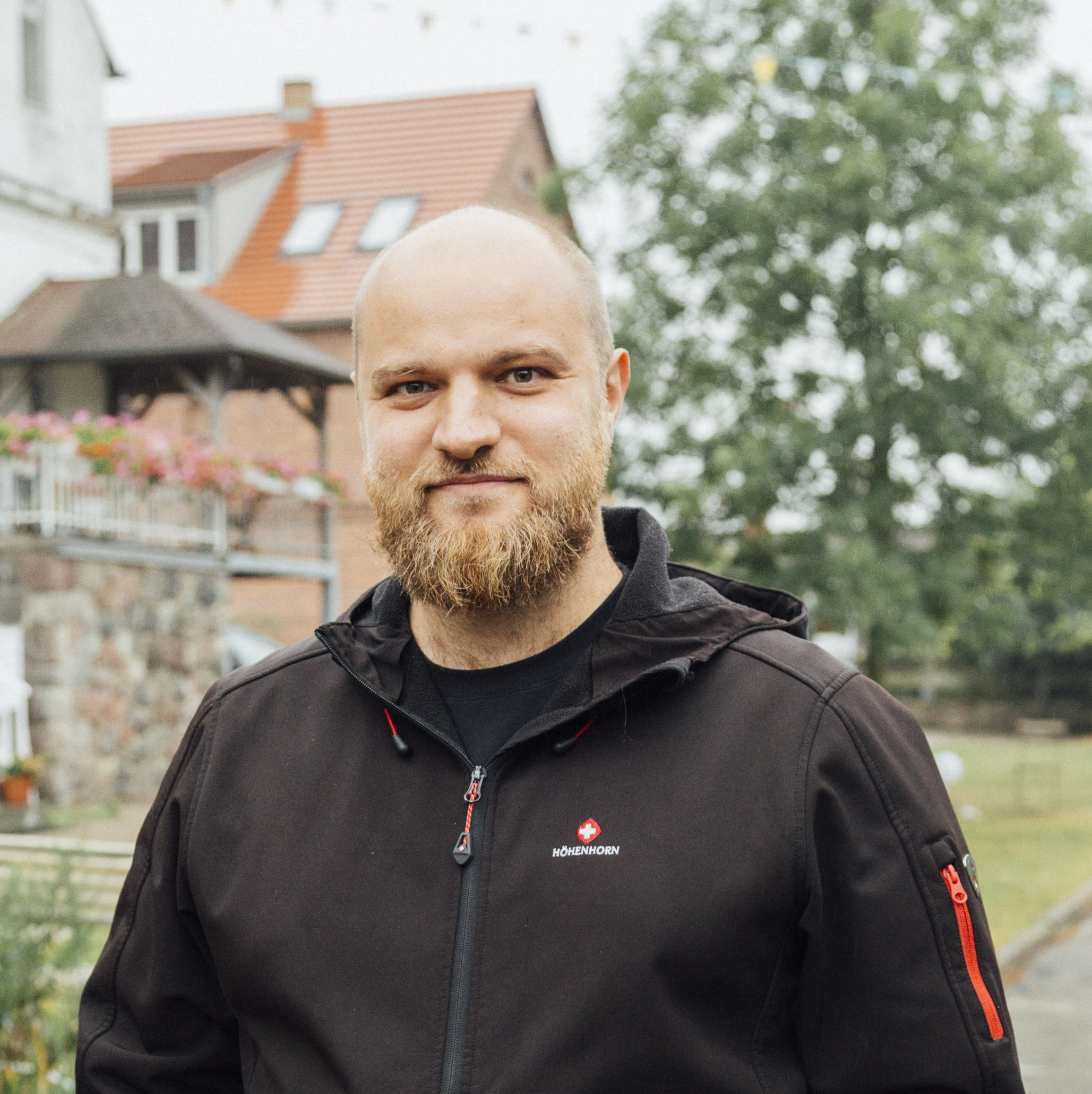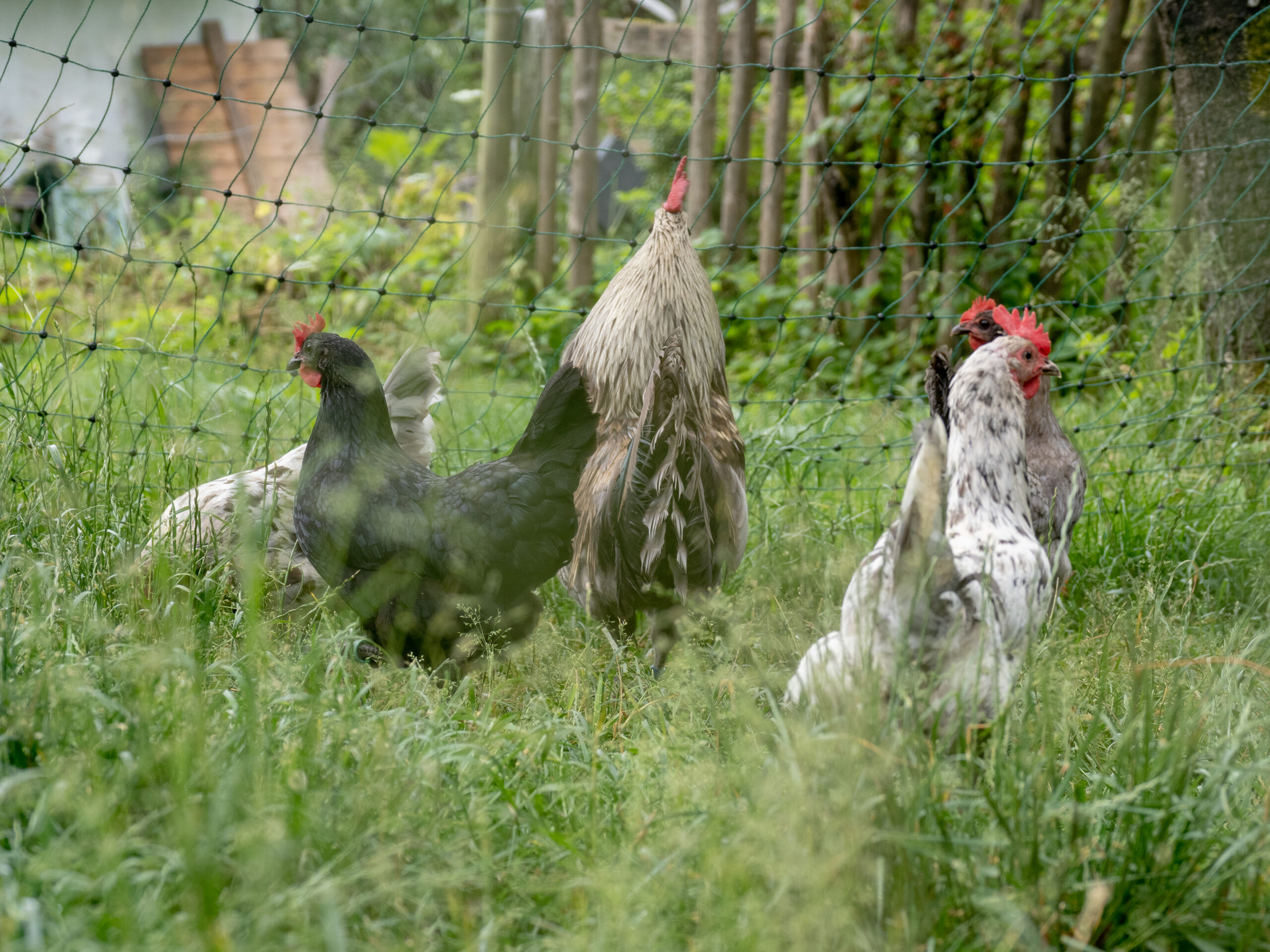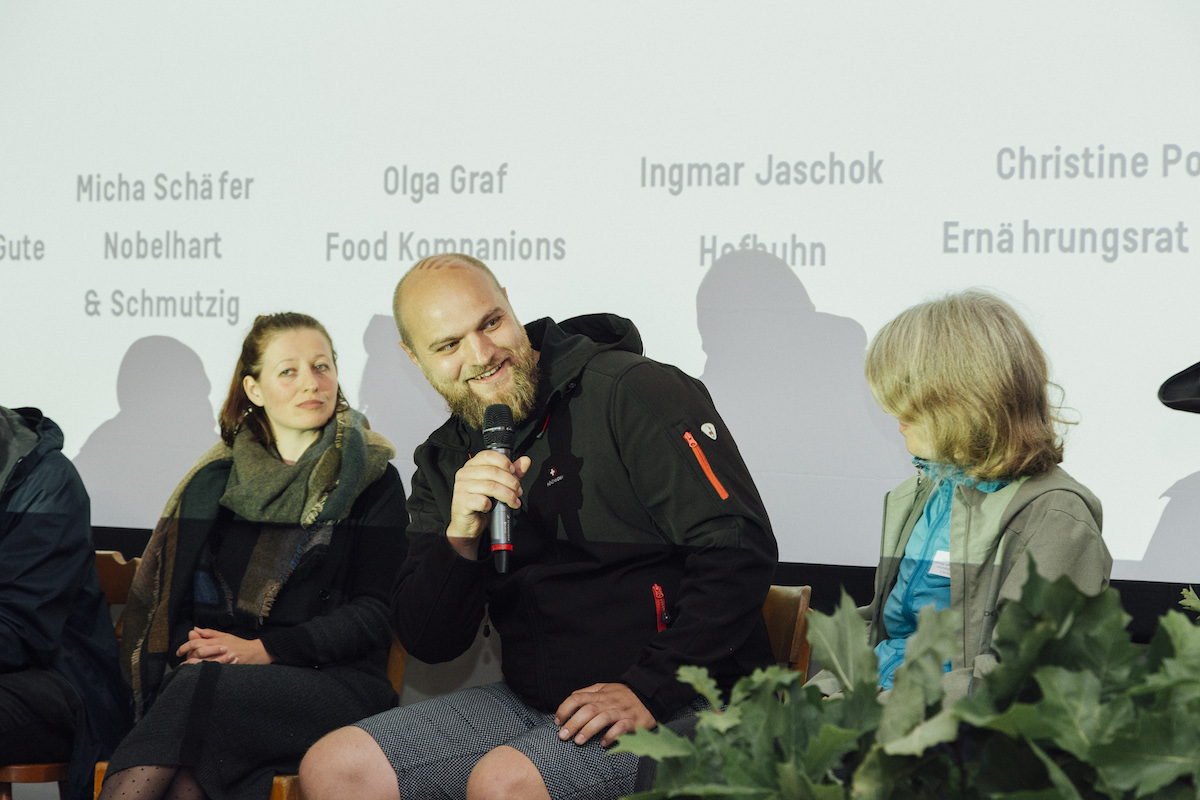Ingmar Jaschok

Ingmar Jaschok was born into the life around agriculture on the Demeter farm Bornwiesenhof. After his agricultural apprenticeship and work, he has now become a strong voice of animal welfare-oriented husbandry with his mediating and educating publications on the Hofhuhn.blog. He also advocates for more mutual understanding and appreciation of agricultural work and its products as a communicator and farm reporter at Besserfleisch.
Hello Ingmar, you’ve become one of the prime exponents for rural agriculture, could you briefly summarize what led you there?
I did not feel represented at all by what I saw in agricultural publicity and public relations. Against politics, against the consumers, destructively in the discussion and obviously without own ideas and initiatives towards the future; I wanted to counteract this. I myself always had the feeling that our customers and we were in the same boat and could really change things together.
When you were growing up on your parents’ farm, did you also see your professional future as a farmer?
As a teenager, I wanted to become a journalist or a writer. It was always my passion to think about complicated things, wanting to understand them until they finally lay on the table in front of me as a few simple thoughts. Also the unconditional responsibility and financial despair of my parents’ living situation always put me off quite a bit, even though I also did work a lot at home. In my early 20s, however, I caught fire again, did my apprenticeship as a farmer and then studied agricultural sciences for a while. Along the way, I’ve always thought about how I can combine my joy of writing with my work as a farmer.
“Thats why honest public relations and transparency doesn’t necessarily have anything to do with randomly pointing the camera, but with picking people up where they are; In completely different realities of life and often unrelated to agriculture, farm animal husbandry and issues like slaughter”
Conventional intensive farming in particular is repeatedly being called into disrepute by the public. How can you counter this with a new image without romanticizing agriculture at the same time?
You have to trust your own interpretation, I think. That is the hardest exercise in the Internet wich is characterized by superficialities. If I’m convinced of what I’m doing, even though I experience the other side of the coin every day. I don’t really have to troll through the Internet in defense or justification mode, but can speak freely from the heart. If I manage to do that, for better or worse, I’ve won. But a big factor for the back of the head is the disconnection between agriculture and society, which must never be forgotten. Thats why honest public relations and transparency doesn’t necessarily have anything to do with randomly pointing the camera, but with picking people up where they are; In completely different realities of life and often unrelated to agriculture, farm animal husbandry and issues like slaughter. Keeping the right amount of empathy, patience and overview is necessary but certainly not easy.
Among other things, you want to encourage an uncompromising transformation in chicken farming, how can this be done?
The term is now quite maltreated and you find it everywhere, but: holistic. To consider egg and meat separately or to value one more has brought us into the situation where even in the organic sector production is done according to industrial standards. Chickens as monogastric animals have to get out of the food concurrence with humans and into business cycles, in which they find their place as waste recyclers.
For me, it always boils down to the proximity issue: we as a society are disconnected from so much and don’t want to deal with what we are responsible for.
What needs to happen most urgently on the way to a chicken farming in accordance with the nature?
The image of the chicken, or of chicken products as mass-produced goods.As I said, even in the organic sector, industrial standards apply, for example, the laying hens are replaced every year, or specialized fattening hybrids are kept and fed highly intensively. The chicken has to get out of the cheap corner, the products have to be valued and for that we need a new way of interacting and working with them – not least also in the kitchen.
Facing the climate and social challenges, how can a conscious consumption of meat for everyone succeed in general? What still needs to happen in the meantime?
I think we have to stop kidding ourselves. Meat is misplaced as a lifestyle product, even in high-priced products, and we’re used to throwing animal products around in the kitchen, even if we often enough don’t even notice it in the dish. Moderation and a real confrontation with what one causes and is responsible for through one’s meat consumption are the point. For me, it always boils down to the proximity issue: we as a society are disconnected from so much and don’t want to deal with what we are responsible for. Also on the resource issue, we were all born into great privilege and need to give back much more of what we take for granted.
During your active mediation and education work in the last few years, have you already been able to notice any social changes in this regard?
I think I notice that something is happening. Narratives are changing and agriculture is realizing that it can no longer just make everything up as it goes along; especially the organic associations. “Organic is best” is over and that’s a good thing. This movement is causing more attention to issues from the consumer side as well, and as a result, change is picking up speed faster and more powerfully.
What makes the community and the exchange so important from your point of view? And what made you join Die Gemeinschaft?
I believe that we can really make a difference with Die Gemeinschaft. Many of the members are role models for others, or want to be close to their role models. If we can make Die Gemeinschaft a place to work with each other, a space for exchange, which is necessary and possible, for example, in partnerships between farms and kitchens, everyone can go home with new thoughts and approaches and change things on the ground. As part of the community, I want to help ensure that we don’t become complacent and sluggish. In the end, it’s always relationships and partnerships that we want, and that also means in real life that work comes before selfie mode.
Photos:
Caroline Prange and Ingmar Jaschok

